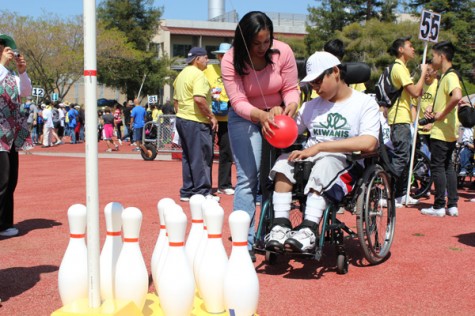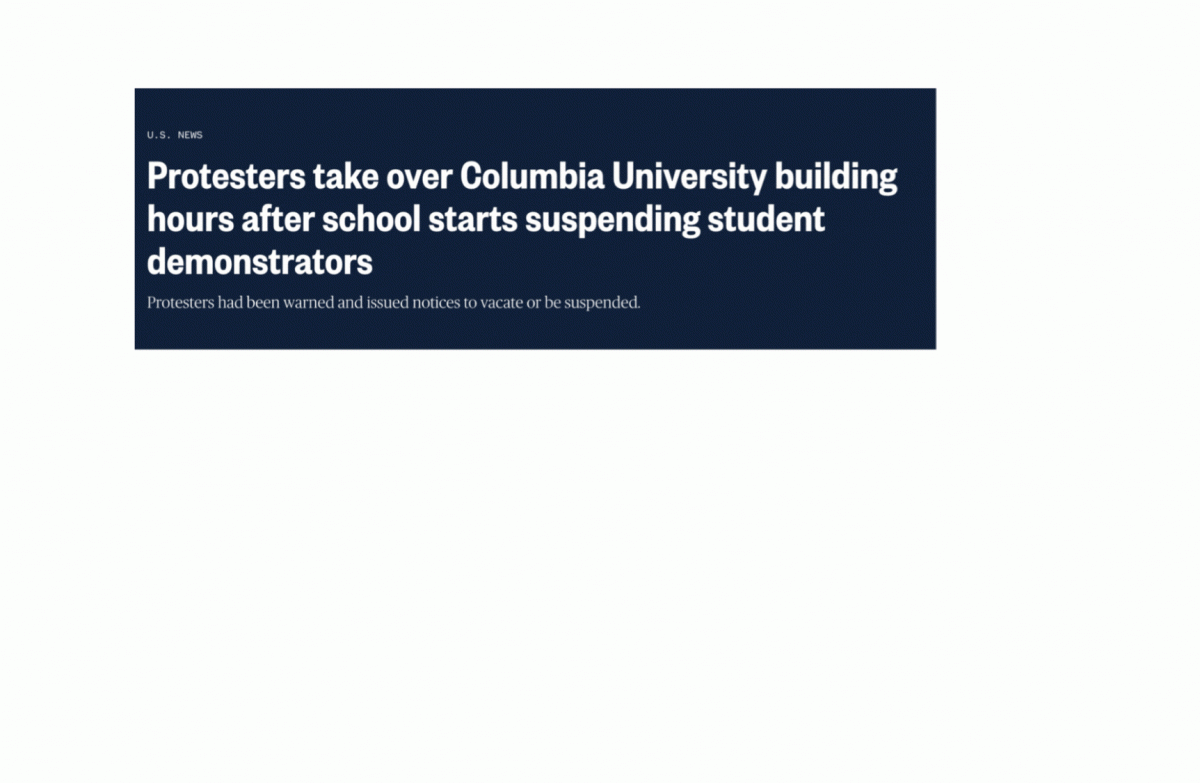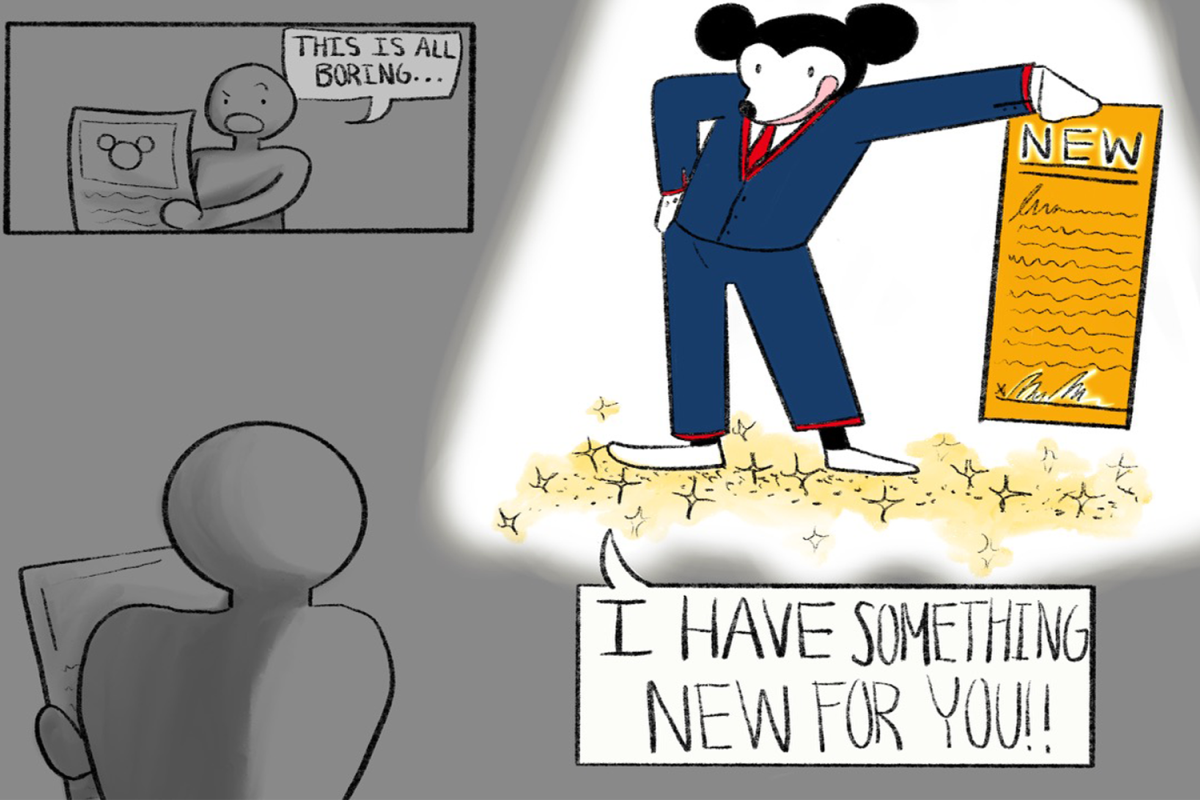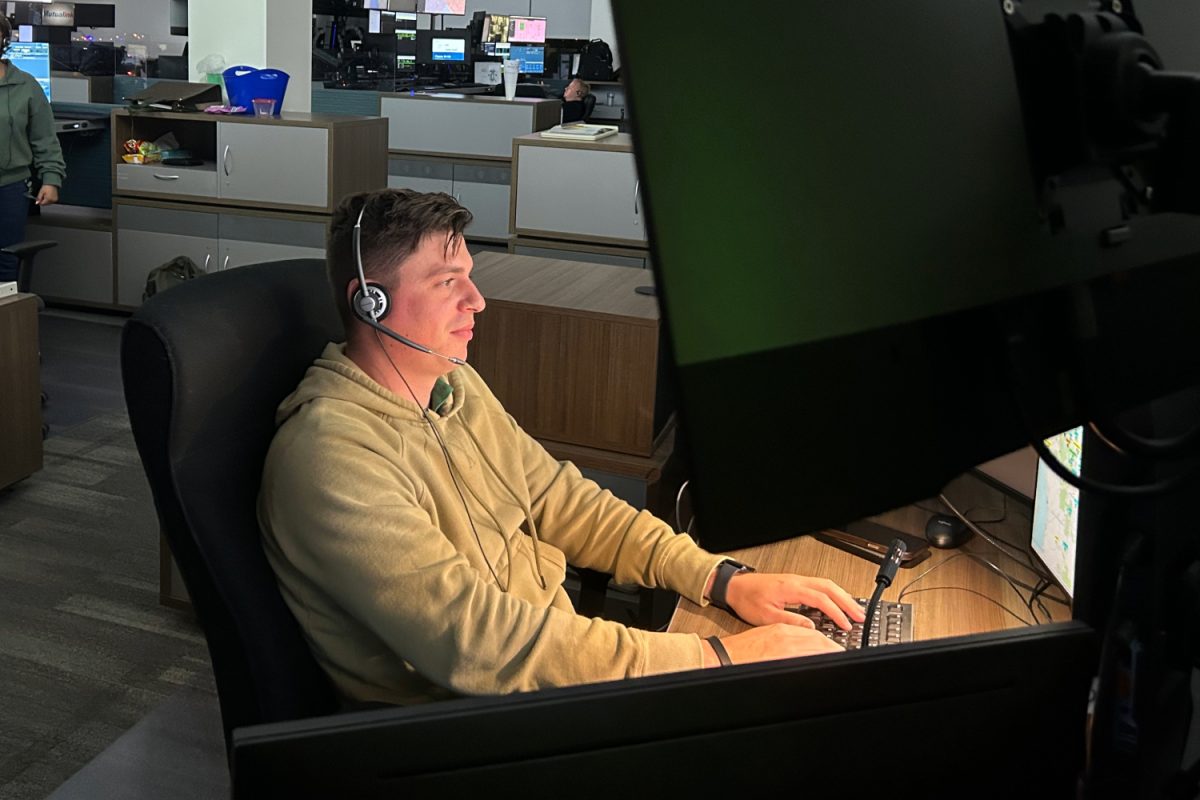Two boys walk down C-hall. As they approach the end of the hallway, they see a girl playing Roblox on her computer.
One boy turns to the other and says, “That’s autism.”
Though autism is not a joke, they still laugh at the insult.
Autism spectrum disorder, also known as autism or ASD, is a developmental disorder that reduces the ability to communicate and interact with others. According to Autism Society, more than 3.5 million people in the U.S. have autism.
Despite the many people that are affected by autism, people still decide to make jokes about it.
“I usually joke about autism with a couple of my friends because we all think it’s funny,” said Paul Jackson*. “We don’t actually mean that a person is autistic or that something is autism. It’s just a joke so we continue to joke about it.”
Jackson and his friends don’t often see each other outside of school, so when they do joke about autism together, it usually happens at Carlmont.
“Carlmont is a safe environment for everyone, including people with autism, and my jokes don’t change that fact because the people I joke around with about autism aren’t offended by them. I haven’t [gotten in trouble], so I don’t plan on stopping the autism jokes because I see no harm in something that makes me and my friends laugh,” Jackson said.
Although Jackson hasn’t gotten in trouble yet, these jokes do bother people.
“It’s offensive when people joke about autism,” said Sarah Dunwoody, a sophomore whose sister has autism. “It makes me unhappy when I hear those jokes because I don’t think it’s something that should be joked around about.”
When she was in elementary school, Dunwoody began to notice that her sister acted differently than everyone else. However, that did not change the way she viewed her sister or how close the two were.
This strong connection between the two sisters makes Dunwoody more sensitive to autism jokes.
“I think people tend to joke about things that they don’t know a lot about, which isn’t okay because you can really hurt or offend someone, like me, when joking about a sensitive subject like autism,” Dunwoody said.
There are many other people that have similar thoughts to those of Dunwoody. Isabel Coughlan, a sophomore whose brother has autism, is one of these people.
“It makes me feel irritated when people joke about autism because most of the time, they don’t know what they’re talking about. They only see the outside of how autistic people act, and they quickly judge and make fun of them just because they act differently,” Coughlan said.
Coughlan thinks that people make jokes about autism because those affected by autism act differently from the rest of society. She believes that the people who make these jokes don’t understand how difficult living with autism actually is.
“The people who have autism have less control over what they do, and to tease or make a joke out of someone for doing something that they can’t control is really rude,” Coughlan said.
These jokes don’t only exist at Carlmont; a lot of them are also on social media.
Many autism jokes are posted on Instagram. Like other social media platforms such as Twitter and Facebook, Instagram uses hashtags to make it easier to find a post related to a topic.
There are about 7 million posts on Instagram tagged with the hashtag “#autism,” with more being posted every minute. However, most of these posts aren’t related to autism at all.
“I sometimes post things on Instagram that look stupid or odd and call it autistic because I think it’s funny. It’s a lot easier to joke about autism on social media because I’m protected by my phone screen. More people may be able to see that I joke about autism since it’s out on the internet now, but I don’t have to face them in person, which makes me feel more secure,” Jackson said.
Posts like these are also commonly found on Twitter.
Whether it’s over social media or in real life, jokes about autism are viewed as disrespectful by many. However, people like Jackson often don’t know about the harm they’re causing others.
“I’m quite surprised because I didn’t know that my jokes were heard by so many people besides my friends,” said Jackson. “But after finding out that other people hear them– both in person and over social media– and that I’ve hurt and harmed others, I regret joking about it so much.”
Jackson now wants to help make Carlmont feel safer by stopping all of these autism jokes, including the ones over social media. However, he isn’t the only one dedicated to making a safe space for those with autism.
Around the world, autism awareness is celebrated on April 2 by fundraising and holding autism awareness events.
“I’m glad that a lot of people want to help stop autism jokes like I do now. It’s not right to make fun of a serious topic,” said Jackson. “I definitely learned my lesson here, and I think everyone should learn from my mistakes. I understand now that I need to think about what I say more and I need to remember that even though something I say may not hurt me, it can hurt others.”
*Some sources requested to have their names changed in order to remain anonymous.


















John • Dec 5, 2022 at 11:16 am
I have ASD. And this is not true. I was diagnosed a long time ago and I still get a laugh out of these jokes. It is not suitable for somebody that doesn’t have ASD to rant and talk about how jokes about ASD hurt others with ASD without asking those with ASD if it is offensive to them. If you are to say a joke about behavioral disorders is cruel without having one is just wrong! I love a good laugh about ASD and a few others do too! Coughlan may have a bother with ASD but he is just stating how he feels. His brother was not once interviewed!
Izzy • Feb 25, 2021 at 12:29 pm
I’m 12 and people in my school use it as a synonym for the r word all the time. I have autism and it makes me so mad. They always say it’s just a joke and I’m just really upset
Benjamin • Sep 4, 2019 at 3:26 am
What exactly makes Autism jokes so appealing to people. They seem so wide spread on the internet these days and I don’t quite get what specifically about Autism makes people see it as such an insulting thing to portray about other contexts in a semi “humorous” way. After Googling “why do people make fun of autism on the internet?” – this was the on the 3rd page and the first one which seems relevant. Not really good enough.
Claire Johnson • Aug 16, 2019 at 1:53 pm
There were some political arguments and some people were bullied. They did not like being bullied by certain people. Some of them were very xenophobic. Be careful what you write. It has nothing to do with disabilities. I doubt that you know this person. You seem like a tale teller to me. You do not know what have caused a certain person to say something. You are reap what you are sowing. People in this article admit that sometimes they are joking. about some things. Doctors may joke about illnesses sometimes. And patients may also joke about their own disabilities.
Marina S • Aug 14, 2019 at 12:16 pm
You can laugh at anything you want; reprimanding people for their behavior is okay. If some people do not like jokes it is okay. You are stupid. What does it have to do with teaching? Read literature in multiple languages. You can make fun of people’s behavior and not of the people. Having certain traits does not give you impunity. There is nothing wrong in being sarcastic. I am going to report you to Twitter for staking. You have been trolling people. If they call you names than you deserve it. It is a real “autismo” of the Internet. People call others names and then play innocent. It is general stupidity that makes people ignorant. Jokes are okay as long as they are innocent. They are harmless.
Raphael • Mar 19, 2019 at 7:08 am
I Have Asperger’s and the best thing to do about theses jokes are to ignore them because they will stop if no one finds it funny
Brenda Adams • Mar 5, 2018 at 9:05 am
If you check out Singer77s twitter you will see frequent “jokes” about autism and “retards.” In spite of many reports to Twitter this is allowed to continue. It is disgusting that people find this funny. This is a music teacher?